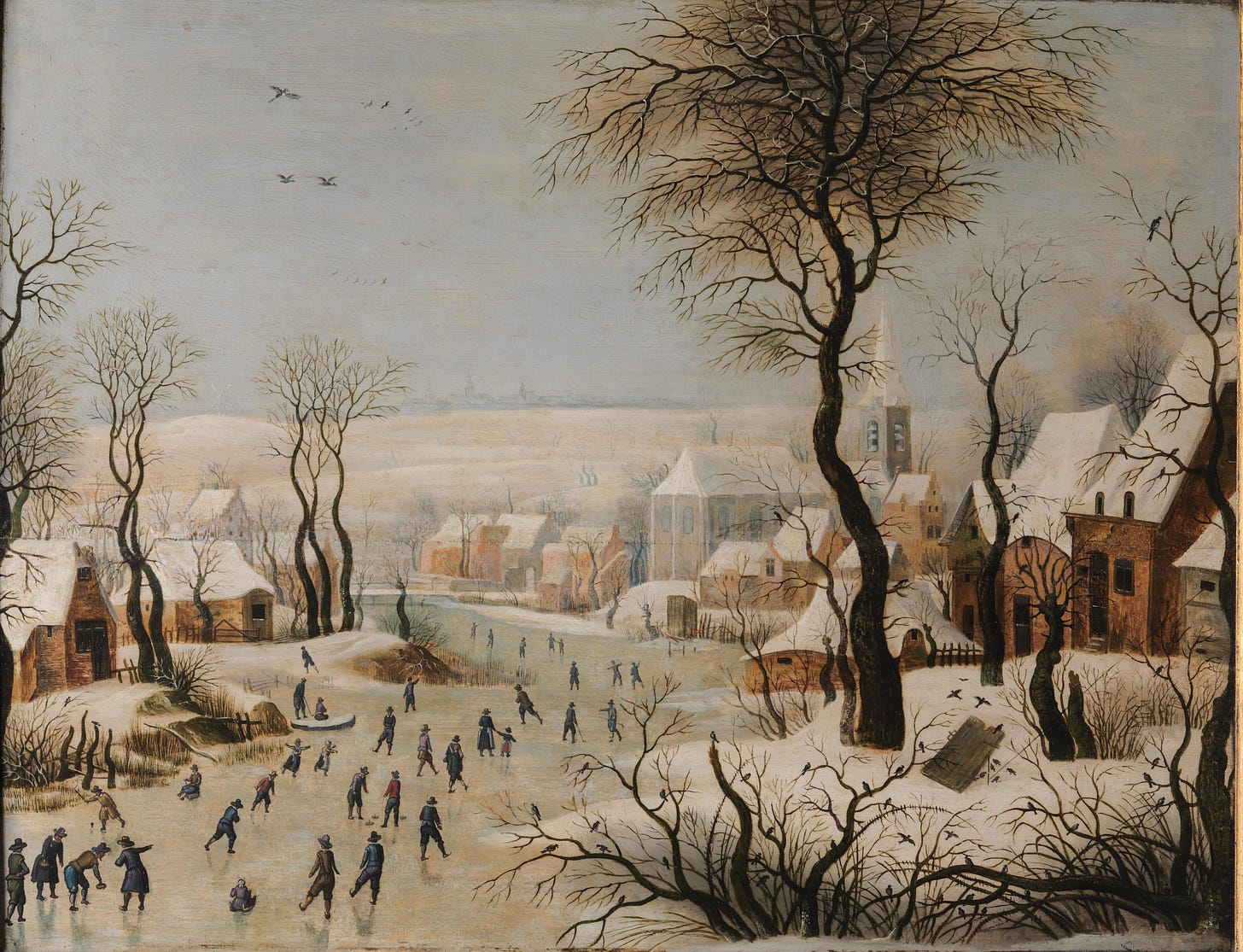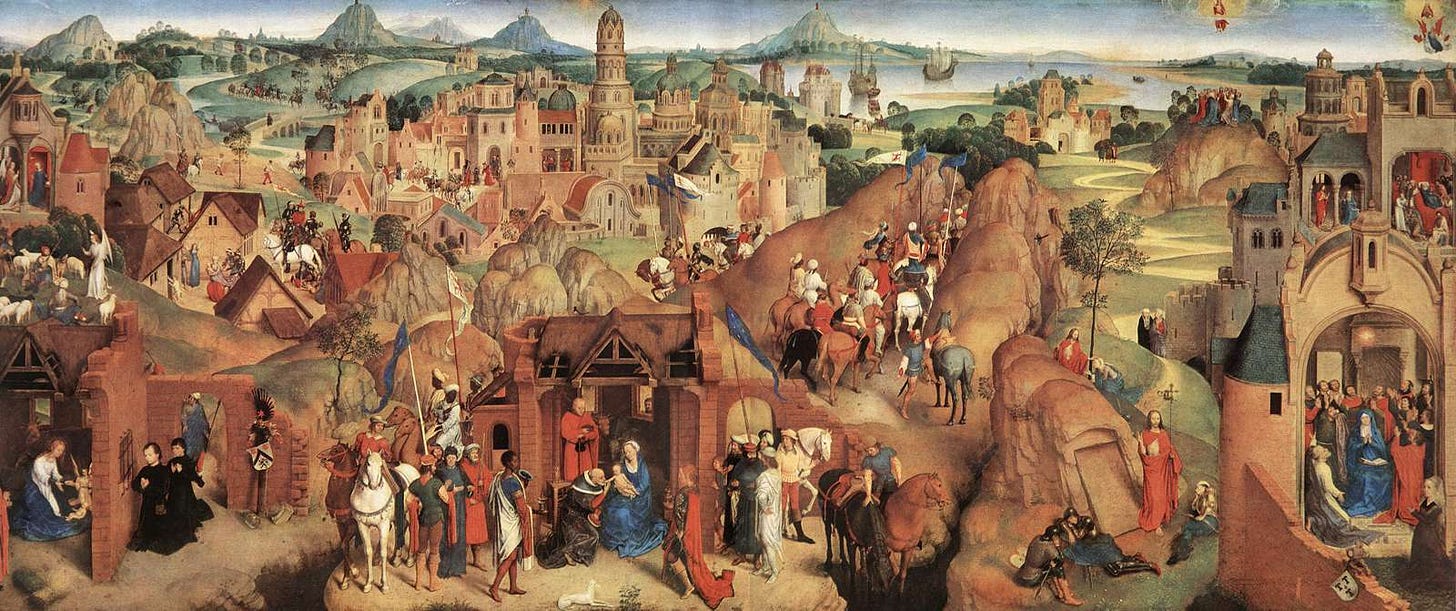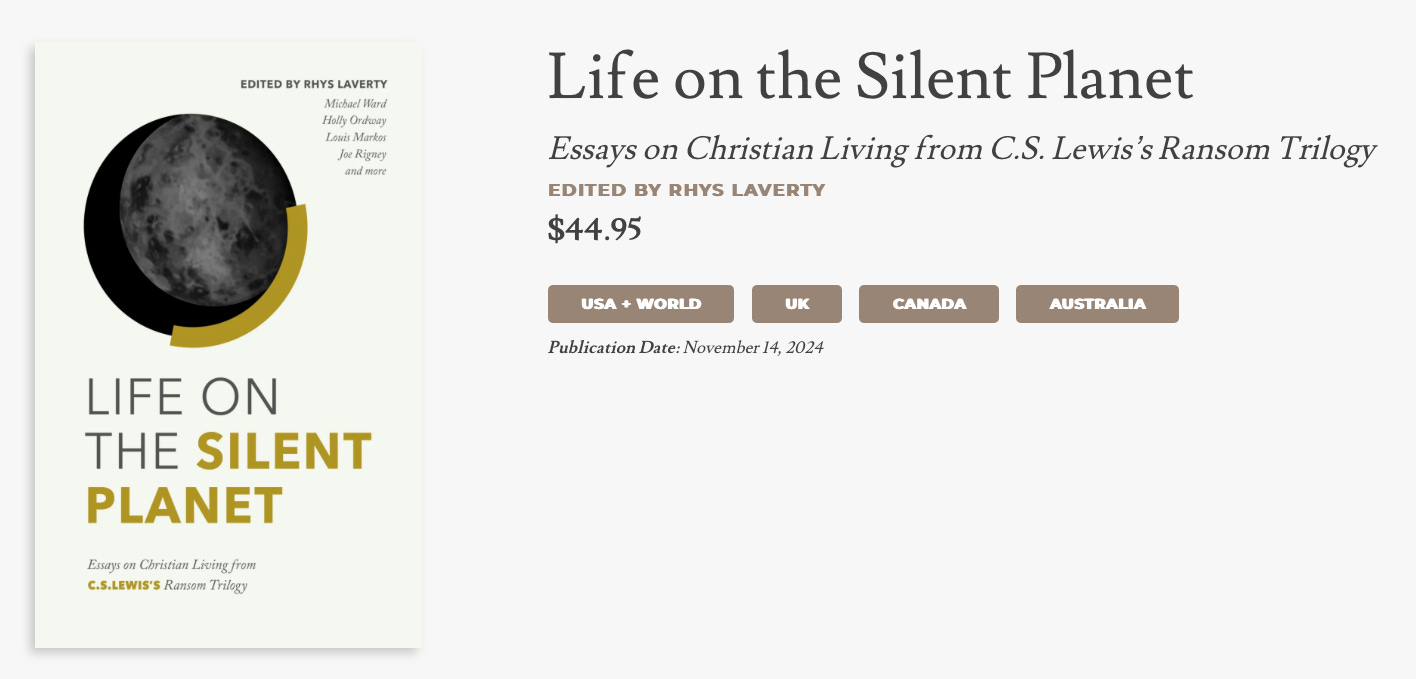Just a reminder that my new show, God, the Bible and Everything, is available for booking for 2025. Reply to this email or get in contact with me for booking details here:
Does Christmas get earlier and earlier every year? Actually, it doesn’t any more. Let me explain why.

I’ve heard it said my whole life:
“Christmas gets earlier and earlier every year”.
They were saying it back in the 1980s, and I can understand why. Wages were low, inflation was high and toys were expensive. In 1981, a modest, pre-assembled, plastic Star Wars Millennium Falcon with a few plastic figures would set you back £30. In today’s economy (or at least our giant nationwide Ponzi-scheme masquerading as an economy) that’s about £140. Got three or four kids? Many did in 1981. If you wanted to treat all of your kids to some decent Christmas presents (which mine wonderfully did), you had to start planning early. Perhaps in January. Christmas could hardly get any earlier.
People have stopped saying “Christmas gets earlier and earlier every year” for a couple of reasons. The first is that you don’t need to save. In 1981, credit was hard to get. Not anymore. Secondly, Christmas can’t get any earlier because of Halloween which has parked its large creepy tanks – possibly containing Waffen SS Zombies – on the lawn of 31st October. Christmas can wait.
Permission to Jingle
So Christmas starts on 1st November. That’s when you’ll notice shops playing Christmas music. Or maybe Christmas really begins when John Lewis drop their Christmas advert (Partnership credit card available 28.9% APR Representative (variable)). Christmas then reaches fever pitch when you lay your hands on your copy of the Christmas Bumper Radio Times. You can almost hear the angels sing as you open it up on the kitchen table and start going through it with a highlighter.
Or maybe Christmas officially starts on 1st December when the first door on the Advent Calendar is opened. These days, these calendars all have chocolates, so it looks like the celebrations have already begun.
Except 1st December is just a day which may, or may not, represent the beginning of Advent, which begins on Advent Sunday. Occasionally, like this year, Advent Sunday is indeed the 1st December. Last year it was the 3rd December. Next year, it will be 30th November.
But Christmas does not begin on Advent Sunday. Advent starts on Advent Sunday.
Do I sound cranky? It’s because I’m realising I’ve been doing Christmas all wrong for most of my life. I’ve been seduced by the mainstream culture, swept along in Santa’s sleigh, handed a mince pie when I wasn’t looking far too early, and lulled into a Yuletide stupor with clips of the 1971 Morecambe and Wise Christmas Special.
I suspect I’m not alone in feeling that Christmas begins sometime in November and ends at bedtime on Christmas Day. In my head, given that I’m the one that gladly cooks lunch, Christmas is over once the washing up is done. Or the dishwasher is put on. Boxing Day, I’m almost ashamed to write, represents a Christmas-free zone. We’ve done it. We made it. Now, what’s on the telly?
So when does Christmas begin and end?
Christmas begins on… Christmas Day. Every year. It’s not getting earlier and earlier. It’s begun on Christmas Day every year for centuries. And Christmas doesn’t end that night. Christmastide is a season celebrating the incarnation of the Lord Jesus Christ, beginning on 25th December and lasting twelve whole days, ending with Twelfth Night on 5th January.
This isn’t just a bizarre folk song about partridges, pear trees and five gold rings. The 12-day season of Christmas was declared by the Second Council of Tours in 567. Originally it included a three-day fast in the middle to coincide with the new calendar year, giving you time to recover from one feast and gear up for the next one.
In England, the festival was known as Yule for a long time, a true relic of a pre-Christian age. It was on or around the shortest day. On this blog, I’ve often quoted Winters in the World by Eleanor Parker, which demonstrates how Anglo-Saxon poetry reveals a culture haunted by the creeping sense of dread from the prospect of an icy winter gripping the land. If you’re not ready, it will grip you. Yule was the cold heart of winter itself. Where better to place the light and warmth and hope of Christ’s incarnation than the shortest, darkest day?
Even though England was rapidly Christianised in the seventh century, the name of ‘Yule’ remained for centuries. “Cristesmaesse” is not found in written records until the first decades of the 11th century. It had also been declared a twelve-day festival in England by King Alfred the Great, who declared it a period when no-one could be made to work.
What about Advent?
Let’s be clear about this. Advent is not Christmas. It is not even looking forward to the revelry of Christmas. It does look forward to the Birth of Christ, as Mary waited for her baby to be born. But the main focus is the promised return of Christ. In his gospel, Mark has Jesus saying:
At that time people will see the Son of Man coming in clouds with great power and glory. And he will send his angels and gather his elect from the four winds, from the ends of the earth to the ends of the heavens.
That sounds quite important, doesn’t it? Jesus goes on to talk about a fig tree – having just cursed one a couple of chapters earlier, which rapidly withered from the roots upwards. Jesus is deadly serious. Judgment is coming. Many of his parables are about waiting for the return of a king, a vineyard owner or a bridegroom. Jesus is warning us that he is coming back.
In all the gospels, Jesus openly and routinely predicts the future: his betrayal, trial, execution and resurrection after three days. He was dead right, pardon the pun (which was intended). Why would Jesus not be right about his return? Have we really thought about that, or prepared for it? What will Christ find when he returns?
Jesus tells many parables about waiting because we are truly hopeless at it. We need to learn to wait. That’s Advent. Only then can the feasting of Christmas begin.
Christians should, in theory, be looking forward to Jesus’ return. Advent should be a season of encouragement and hope. The world is in a hot anxious, divided mess. But the cavalry is coming. Advent collects and prayers are infused with anticipation and excitement. Do we long for the return of Christ? No? Let’s get better at that.
So let’s prepare for Christmas during Advent, but hold off celebrations until the day – the first day of the season. You may be wondering how on earth Christmas could live up to such expectations. It probably can’t. But Advent can. As surely as he rose from the grave, Christ will come again. He will finally defeat Satan, wickedness and death itself. And we can enjoy the New Heavens and the Earth. It literally could not be better.
Doing Advent
Some Christian traditions fast for Advent. It makes sense. Fast is literally delaying gratification. I did a low-carb, low-sugar fast last year. I abstained from bread, biscuits, cakes, crisps and chocolate until Christmas Eve – unless someone had gone to the trouble to make them for a party or something. I think I’ll try that again this year.
How about it? It makes Christmas a lot sweeter! Literally.
For CS Lewis fans, here’s one last thing. Life on the Silent Planet is out this week. The Davenant Institute were kind enough to send me a copy. It’s not cheap, but for fans of the Ransom Trilogy, it’s a real treat - and includes an essay from the leading CS Lewis scholar, Michael Ward. Here’s what I said about it:
As our world is ever more confused about gender and drinks more deeply from the well of AI and transhumanism, CS Lewis’s Cosmic Trilogy becomes more and more prescient. This is fascinating collection of insightful, readable essays from experts who have thought long and hard about what a silent planet needs to hear loud and clear.







